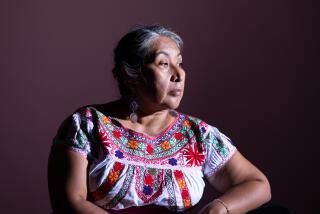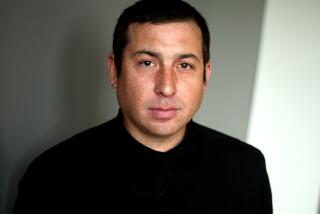His Language Lost, His Legacy Lives On
- Share via
The life of Antonio Maria Ortega, said to be the last Native American to speak the Fernandeno dialect, is interwoven with many of the famous people and places of San Fernando Valley past.
Born at the San Fernando Mission in 1848, Ortega was raised at Rancho los Encinos (now the home of Los Encinos State Historic Park) on land his family had acquired. When Ortega was about 10, his family lost its land grant and the young boy was sent back to the mission, while his parents were allowed to stay at the rancho.
Ortega worked as a laborer at the mission. By his early 20s, he had gone to work for Geronimo and Catalina Lopez, proprietors of Lopez Station, a stop on the Butterfield Stage Line. It was in their household that he met a housekeeper named Isadora Garcia, who later became his wife.
Antonio and Isadora lived with their eight children on Cornell Street in San Fernando. He earned a living as a laborer and was an unofficial medicine man to local Indians. Antonio loved passing down family stories, especially to his daughter Vera Salazar, who retold them to younger generations.
“Nana,” as Isadora was known to her grandchildren, died in 1932 at the age of 64. “Tata,” as Antonio was called, was in his early 90s when he died in 1941 in his sleep at the home of his youngest daughter, Sally Verdugo. Both are buried at Oakwood Memorial Park in Chatsworth.
Their Native American legacy lives on through relatives, including grandson Rudy Ortega Sr., who is chairman of the Fernandeno Tataviam Tribal Council and known to his tribe as Chief Little Bear, and their granddaughter Beverly Folkes, who is a member of the board of directors of the Oakbrook Chumash Interpretive Center in Thousand Oaks.
More to Read
Sign up for Essential California
The most important California stories and recommendations in your inbox every morning.
You may occasionally receive promotional content from the Los Angeles Times.













